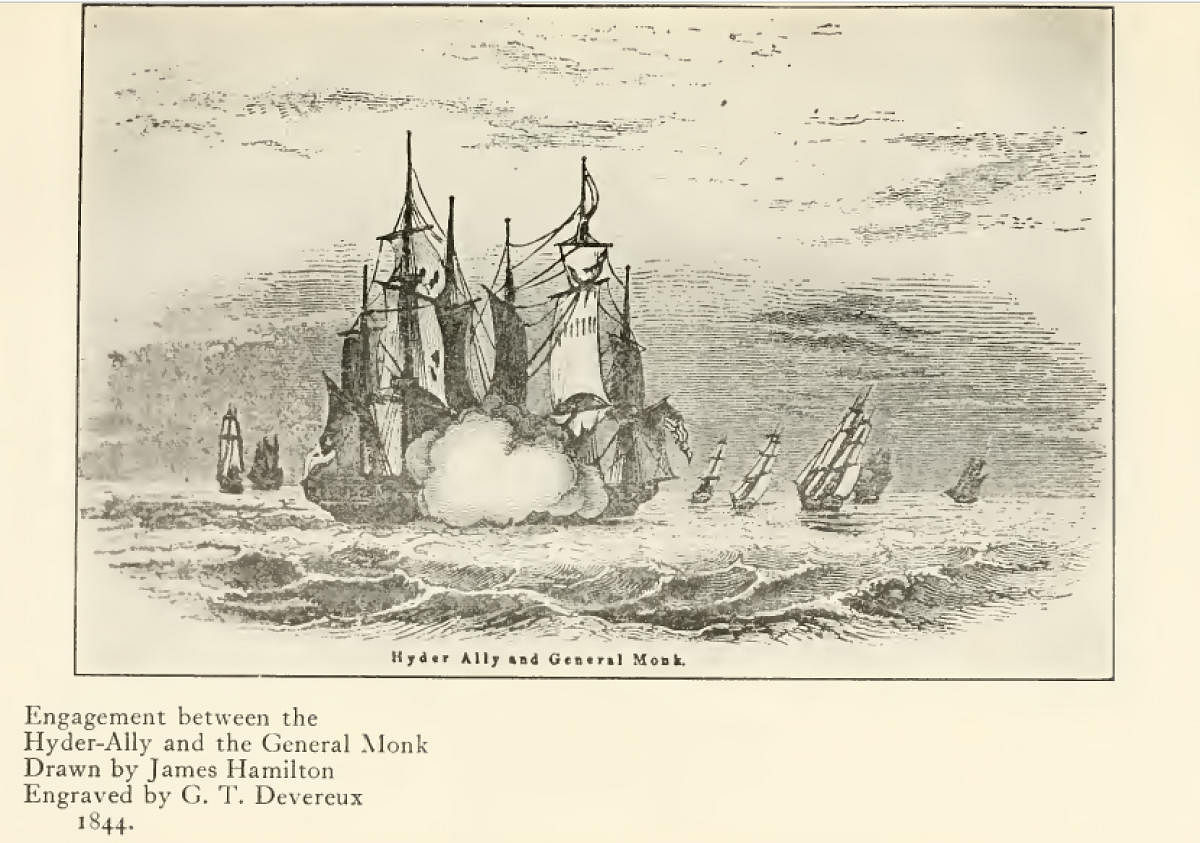
As Hyder Ali was shaping his political career in southern India, in England, Peregrine Bertie succeeded his father in January 1742 as the third Duke of Ancaster, according to a genealogical account. He raised a regiment of foot for the king of England during the rebellion in Scotland in 1745, according to The Gentleman's Magazine. Allan Chivers in The Berties of Grimsthorpe Castle, notes that Peregrine was a leading horse racer who started a number of famous racing lines. As a military administrator, he was probably aware of the happenings in India. In fact, he was transferred in a year from the post of the master of the horse to the queen to that of the king. This transfer was due to the changes within the East India Company (EIC) in England, alarmed by the acts of the English prime minister, Lord Chatham, to curb its influence, which by then controlled huge resources and land across India.
In 1760, an overconfident English army, led by Major Moore, tasted its first defeat at the hands of Mysoreans, under Hyder Ali in Trivadi near Pondicherry. And through that decade, Hyder Ali continued to spoil the aims of EIC in India. Did the military acumen of this Mysorean ruler play a role in Peregrine naming his foal Hyder Ally in 1765? This may not be surprising as another race horse breeder in England named a foal Tippoo Saib after Tipu Sultan in 1769. Clearly, the military and political deeds of this father-son had a deep impression on the British psyche.
Interestingly, foals within America were also being named Hyder Ally (and Tippoo Saib) in the 1770s. In 1775, the colonies in erstwhile USA rose against Great Britain, declared independence and raised their own flag. Around the same time in Mysore, Hyder Ali with help of the French, gave the EIC its worst reverses in its military history. The Americans received news of Hyder Ali's successes on August 23, 1781, writes Frank Moore in his Diary of the American Revolution. On October 19, 1781, the British land forces led by Charles Cornwallis surrendered to the Americans, led by George Washington. This was celebrated at Trenton, New Jersey with 13 toasts accompanied with a discharge of artillery nine days later. One of these was for "The great and heroic Hyder Ali, raised up by providence to avenge the numberless cruelties perpetrated by the English on his unoffending countrymen, and to check the insolence and reduce the power of Britain in the East Indies."
But the British still ruled the seas. According to James Fenimore Cooper in History of the Navy of the United States of America, Pennsylvania state purchased Hyder Ally, a small merchant sloop and equipped it with 16 six-pounder guns to help protect the American vessels. On April 8, 1782, Captain Joshua Barney commanded Hyder Ally to a decisive victory over General Monk, a much larger British ship, in the Delaware Bay. Philadelphia city burst in celebrations and ballads were sung through its streets.
The world today is considered a global village. But it may surprise us, that even in the 18th century, seemingly local political events and humans made an impact on lands and societies far away. Hyder Ali's name echoing across the proverbial seven seas in the distant North America's daily life for many decades is testament to this.